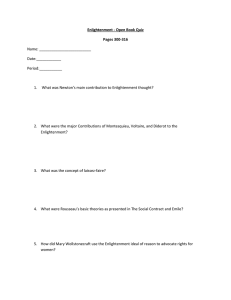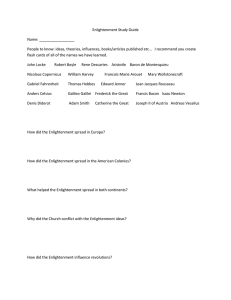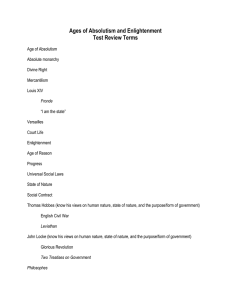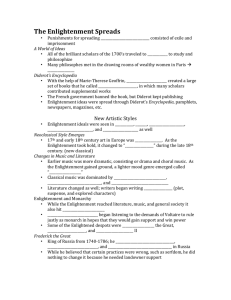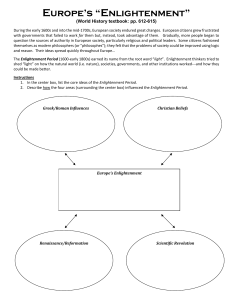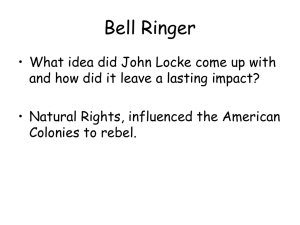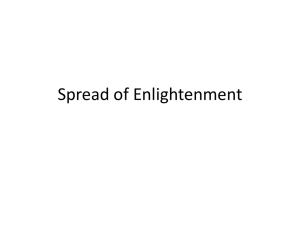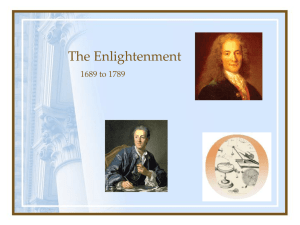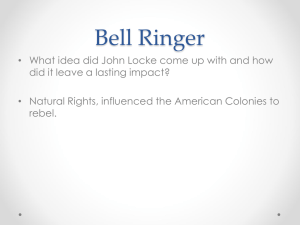Great Thinkers of the Enlightenment Directions:
advertisement
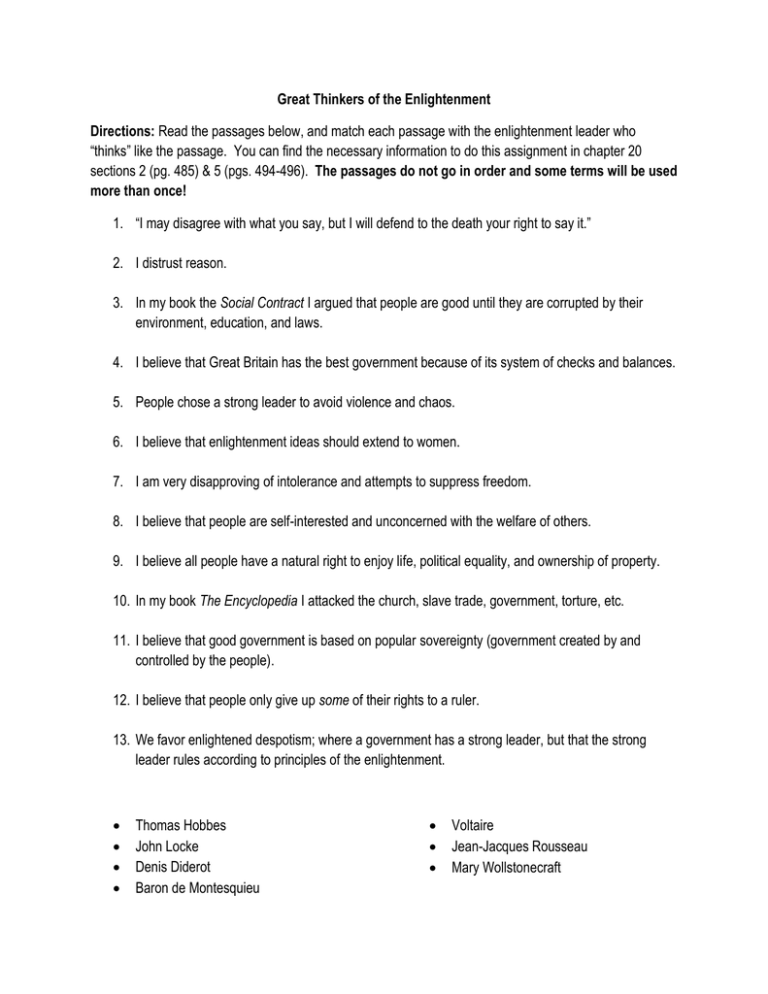
Great Thinkers of the Enlightenment Directions: Read the passages below, and match each passage with the enlightenment leader who “thinks” like the passage. You can find the necessary information to do this assignment in chapter 20 sections 2 (pg. 485) & 5 (pgs. 494-496). The passages do not go in order and some terms will be used more than once! 1. “I may disagree with what you say, but I will defend to the death your right to say it.” 2. I distrust reason. 3. In my book the Social Contract I argued that people are good until they are corrupted by their environment, education, and laws. 4. I believe that Great Britain has the best government because of its system of checks and balances. 5. People chose a strong leader to avoid violence and chaos. 6. I believe that enlightenment ideas should extend to women. 7. I am very disapproving of intolerance and attempts to suppress freedom. 8. I believe that people are self-interested and unconcerned with the welfare of others. 9. I believe all people have a natural right to enjoy life, political equality, and ownership of property. 10. In my book The Encyclopedia I attacked the church, slave trade, government, torture, etc. 11. I believe that good government is based on popular sovereignty (government created by and controlled by the people). 12. I believe that people only give up some of their rights to a ruler. 13. We favor enlightened despotism; where a government has a strong leader, but that the strong leader rules according to principles of the enlightenment. Thomas Hobbes John Locke Denis Diderot Baron de Montesquieu Voltaire Jean-Jacques Rousseau Mary Wollstonecraft
